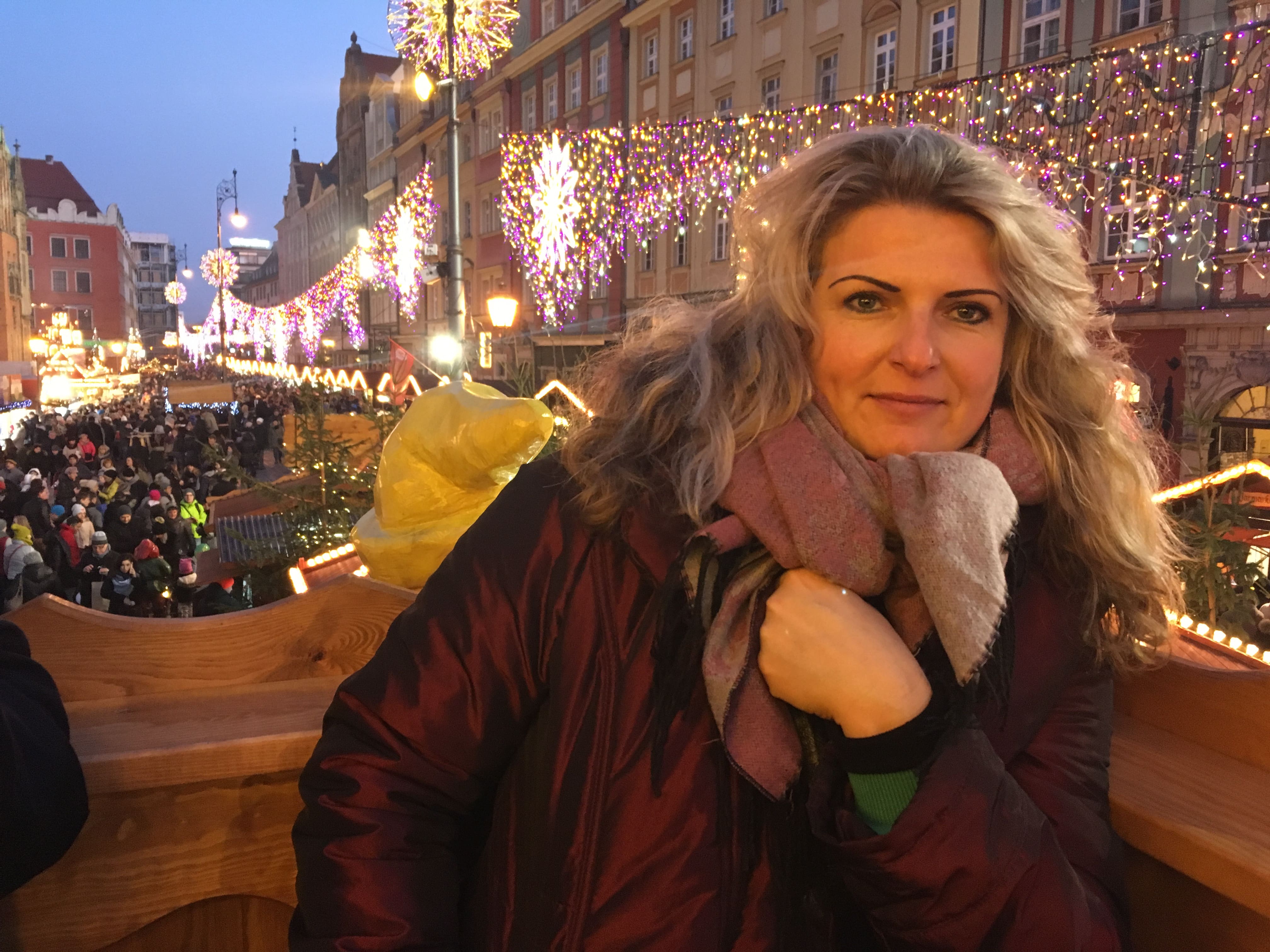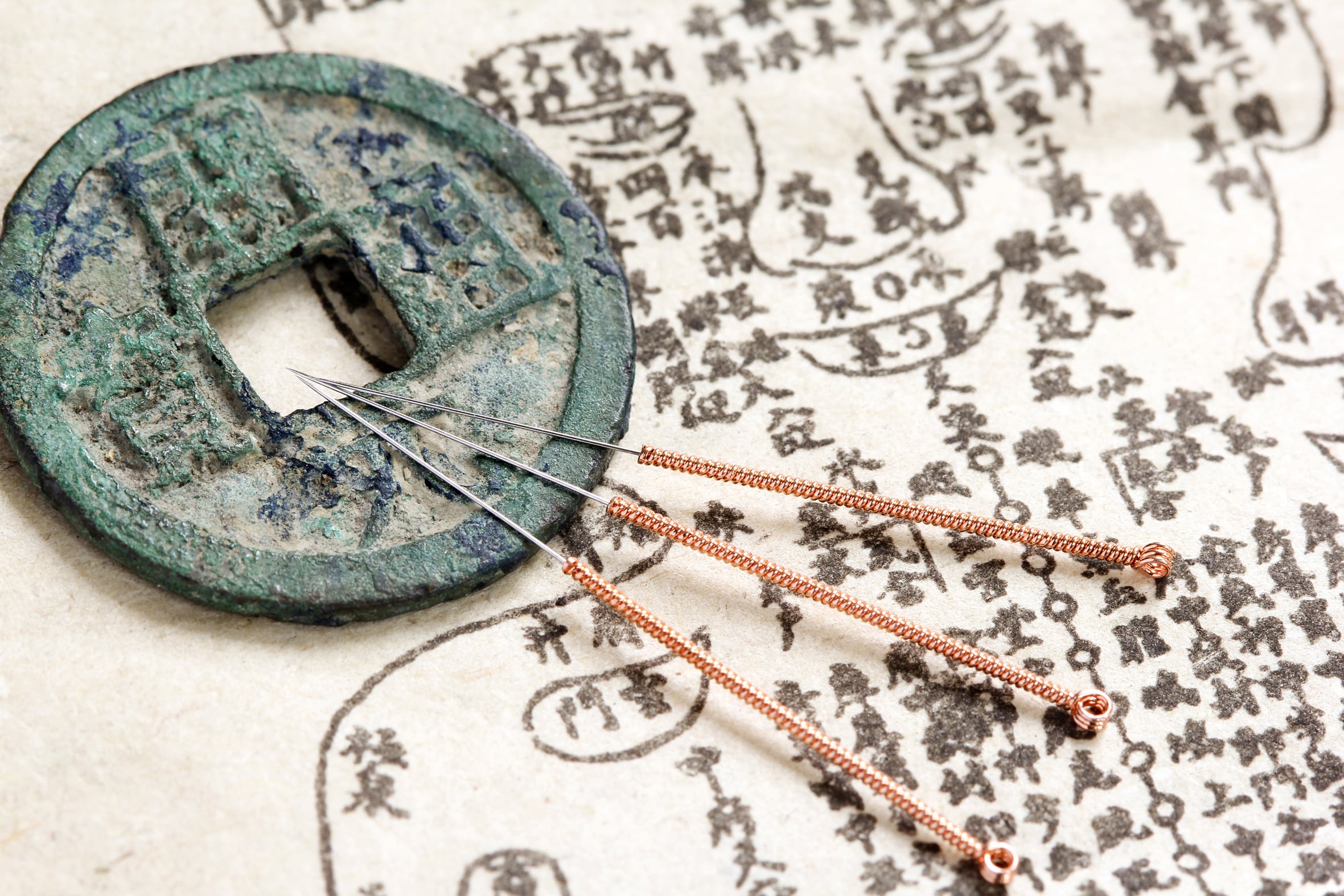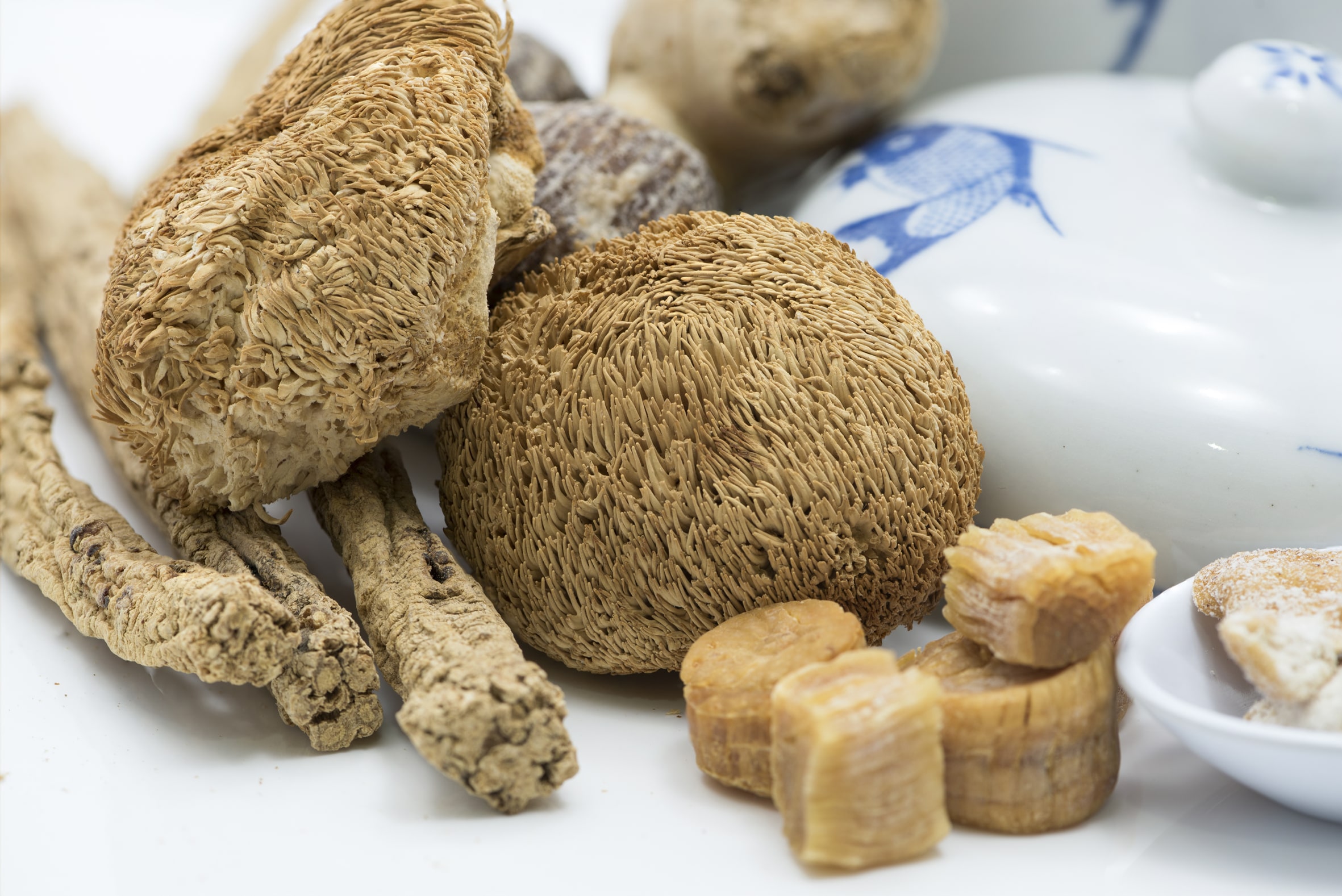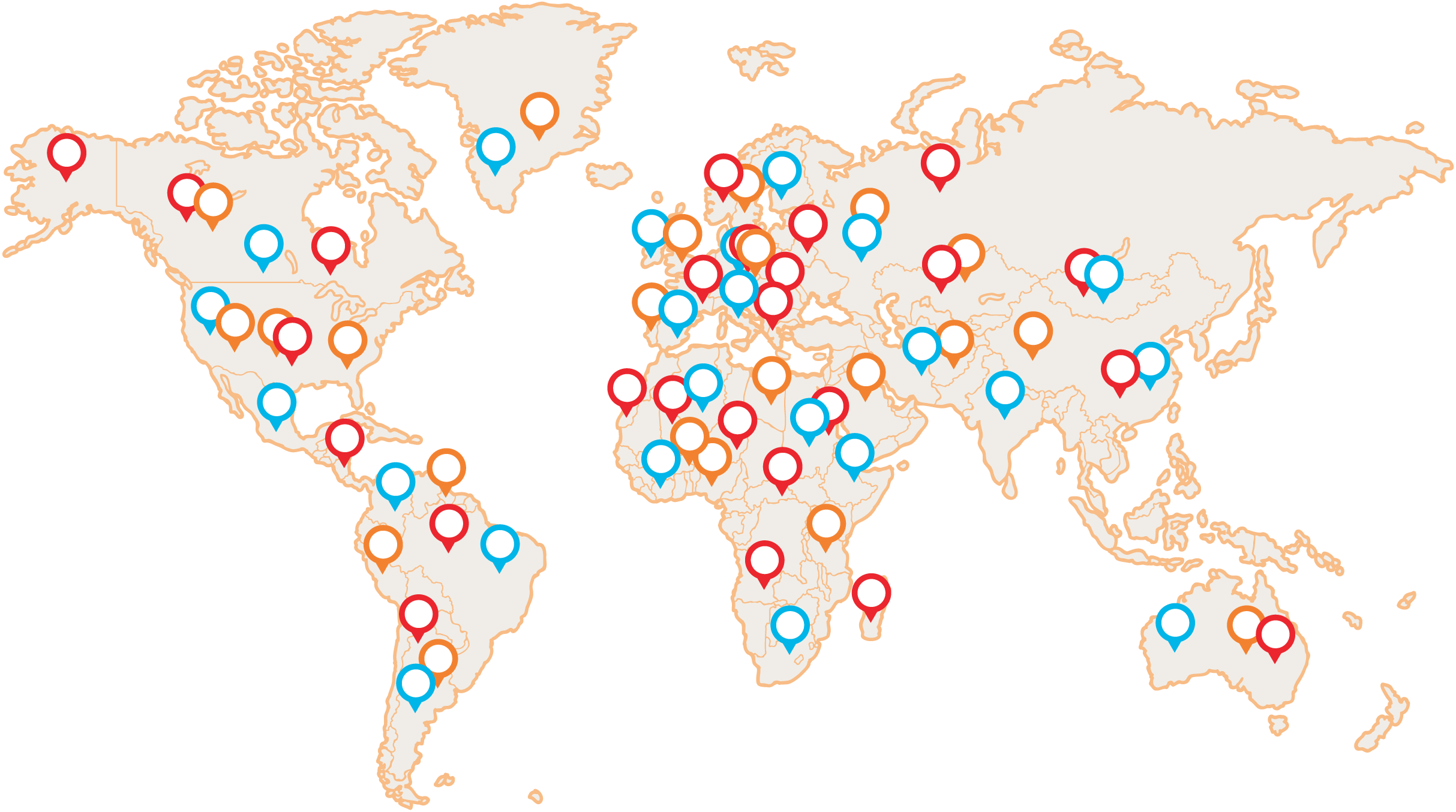Mrs. Dedkova, we know you as a long-standing and experienced therapist of traditional Chinese medicine. How did you get into it? Was it an accident or was it your intention to pursue this specific field?
I was working as a physiotherapist and found that sometimes I could not move forward with patients because, for example, thoracic spine pain always appeared together with stomach pain, etc. And being a curious girl, I wanted to understand these phenomena. So I started looking for a field that could help me explain it and teach me how I could help the patient. And I found traditional Chinese medicine.

Where did you study Chinese medicine? In the Czech Republic or abroad?
I learned the basics in the Czech Republic at the TCM Bohemia Institute. I managed to get an internship at Nan Jing University three times, and I also studied Taoist acupuncture in Slovakia for three years. And I am still learning. I can't do without it.
You've been working with Chinese medicine for a really long time and you have a comparison. Is it possible to say that Chinese medicine is better than Western medicine? Or is there no comparison?
Unfortunately, there's no comparison. Each has its limits. Each has its great advantages. I still think the ideal would be the two-way cooperation that I saw in China. Fortunately, there are already many doctors in Ostrava who share the same opinion.
Western medicine has broken people down into individual particles. One treats the nose, another the stomach, another the joints, another the kidneys. But few look at the whole - either they don't have the time or the will, or they are simply unwilling to admit that the individual "particles" might be related.
Western medicine suits mainly those patients who are looking for a quick fix. They want a cure and do not want to change anything themselves, they are not looking for the cause of the difficulty. Whereas people come to my practice who understand that they need to change something in their lives.
What do you think is its greatest strength and advantage?
My patients are happy when I explain their difficulties, describe the causes and they understand what they have been doing wrong for months or years. Often we find periods where something was neglected and led to problems that only manifested themselves years later.
To give a couple of examples: a woman was treated by me for severe menopausal flushing. That worked, but she came back two years later and the treatment didn't work. So we were looking for the moment when the difficulties returned, and the woman remembered that she had received a gift - a stay in a spa. In the words of Chinese medicine, "the cold penetrated so deeply that the body tried to expel it by generating great heat". After taking the cinnamon mixture, the six-month-long difficulty disappeared within a week. I often use this blend for back pain as well. Because it is not a back affliction but only a blockage of cold in the bladder path. And speaking of the back, often it is enough to treat the scars after a cesarean section, hernia, gallbladder and the pain is gone. These patients are often out of work after several months of medication, rehabilitation, and disability.
Conversely, do you think Chinese medicine has any major weaknesses?
The old one used by Taoist therapists, no. After all, a doctor at the imperial court was only paid if the imperial family was healthy. But we've sort of adopted Chinese medicine. We don't do prevention so much anymore, and we're more often just putting out fires.

How long have you been offering your therapeutic services? Do you focus only on Chinese medicine, or is your scope broader?
I've been doing TCM for 12 years now and I combine TCM with modern rehabilitation.
With what difficulties do people see you most often? Can you name the three most common difficulties that are typical of today's hurried person and that you see over and over again?
Everything nowadays, really. Gynaecological, digestive, autoimmune, a lot of movement, but lately mostly psychological difficulties.
How do the clients cooperate? Do they have the will to work on themselves and accept the fact that sometimes treatment is a long haul? Do they understand that there is no miracle cure, that they simply have their health in their own hands and you are just describing the causes of their health problems and showing them the way to eliminate them?
Maybe it's often not about willpower, but about how they gradually find that sometimes small changes (like diet) work and they feel better. And suddenly they themselves want to know more and work harder on themselves too. Because when a woman who "gains" up to 8 kg before each period and hormones haven't helped her in six months finds that after hot breakfasts, lunches and dinners the weight gain is only 1 kg, then she is happy to deny herself yoghurts, salads and cold fruit.
You have your practice in Ostrava. Is there anything specific about this area in terms of diseases?
I never thought about that.
Are you a therapist to yourself and your loved ones?
I'm sure. But I don't underestimate preventive check-ups.
How do you feel about your health in general? Is it possible to say that "the blacksmith's mare walks barefoot", or are you sensitive to your body and pamper it?
My motto is: I don't want to look like my patients on their first visit. So I definitely take sponges year-round. Maitake in the spring, Auricularia in the summer, Chaga and Coriolus in the fall, Cordyceps in the winter. I exercise regularly, undergo regular liver and gallbladder cleanses.

Do you also use vital MycoMedica mushrooms and YaoMedica tinctures in your practice? Do you see in your patients that they really help them and that patients praise their effects?
They love them. They help them, they have beautiful names and packaging. And I always tell them that they are made with love.
What do you yourself see as the benefits of these products? Can you say that they are something special?
I could make most of the recipes in an herb shop, but that would take a long time. This way I have them on hand. For an acute illness, this is very important. And my patients (mostly whole families) have beautiful drops and mushrooms instead of paralen, brufen, and take them knowing that they have no side effects and, most importantly, they don't have to give their children "chemo".
The Dalai Lama said: "Those who do not cultivate their inner world cannot understand the tremendous influence that their inner values have on a person. Inner peace and a balanced mind are the source of happiness and good health." Do you have a favourite quote you would like to mention? Which one might inspire our readers as they find their way to health?
A quote from a doctor in a clinic in China: 'People in the West have to work hard until they are 40 to save up for a doctor for the next 40 years'. Let's change that together!
Thank you for the interview.
Contact Mrs. Dedkova:
Rušná 1716/2, Ostrava Poruba, 708 00
tel. 777 172 989
rehabilitacni.sluzby@seznam.cz
 Vital mushrooms PRO (16)
Vital mushrooms PRO (16) MyTao Edition (14)
MyTao Edition (14) Vital Mushroom Extracts (25)
Vital Mushroom Extracts (25) Combination of mushrooms and herbs (19)
Combination of mushrooms and herbs (19) Traditional recipes (5)
Traditional recipes (5) BIO vital mushrooms powder (9)
BIO vital mushrooms powder (9) Syrups (12)
Syrups (12) Dried vital mushrooms (6)
Dried vital mushrooms (6) Honey products (5)
Honey products (5) Vitamins (4)
Vitamins (4) BIO green food (2)
BIO green food (2) Other (2)
Other (2)



